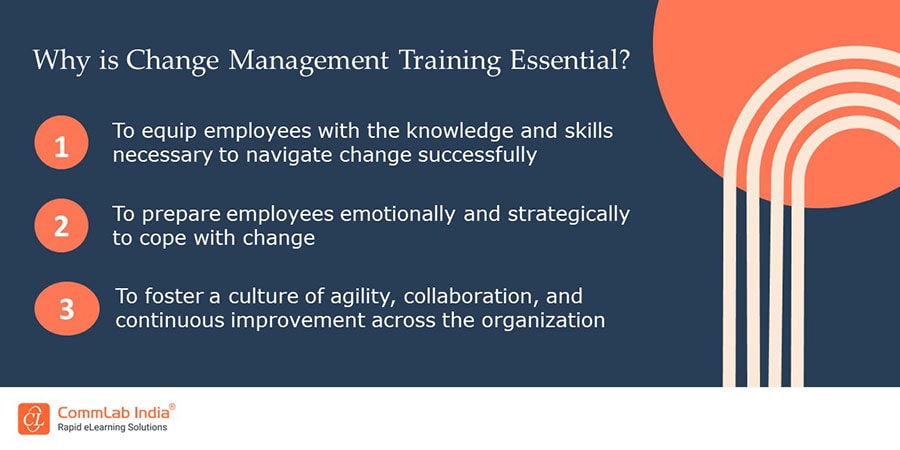Corporate Leadership Training Essentials — How to Build Leaders for the Future
Good leaders steer their teams toward exceptional growth and success. Here’s what to include to design an effective leadership training program.

In the words of Bill Gates, “As we look ahead into the next century, leaders will be those who empower others.” True that! In the dynamic landscape of corporate environments, the role of leadership has never been more critical. As businesses navigate through rapid changes, evolving technologies, and shifting market demands, the need for effective leadership is paramount. However, leadership isn't merely a trait one is born with; it's a skill that can be nurtured and developed through comprehensive training programs. In this blog, we delve into the significance of leadership training in the corporate world and outline five essential topics that form the foundation for building leaders equipped to tackle the challenges of the future.
Leadership Training is Crucial to Build Leaders for Future.
Here are the essential topics that’s integral to an efficient leadership training program:
- Communication Skills
- Change Management
- Project Management
- Time Management
- Employee Engagement
Why is Leadership Training Important in the Workplace?
“A leader is one who knows the way, goes the way, and shows the way” — John C. Maxwell, American author and speaker. Well, that’s why you need to groom your employees to become leaders who can lead the way to your business success. Naturally, this calls for an effective leadership training program that can shape your employees into leaders who drive teams toward achieving organizational goals. Here’s why leadership training is important in the workplace:

-
Enhanced Decision Making
Decisiveness is one of the most needed qualities for being a good leader. Effective leadership training equips individuals with the necessary tools and techniques to make informed decisions. Leaders learn to analyze situations, evaluate risks, and choose the most suitable course of action, thereby driving organizational success. -
Improved Team Performance
Good teams deliver great results. Leaders play a key role in shaping their teams and boosting their performance. It is thereby essential to groom your leadership team and equip them with the required knowledge and skills to shoulder the responsibility of building teams that deliver expected results. Leaders who undergo training possess the ability to inspire and motivate their teams effectively. By fostering a culture of collaboration and empowerment, they enhance team cohesion and productivity, leading to tangible business outcomes.→ Download Case Study: Virtual Leadership Training Program for a Food Safety Company
-
Greater Adaptability to Change
In today's volatile business landscape, change is inevitable. One needs to be proactive and be prepared for unprecedented challenges and contingencies. Leadership training instills the flexibility and resilience required to navigate through uncertainties and embrace change positively. Leaders learn to anticipate challenges, adapt strategies, and lead their teams through transitions effectively. -
Better Strategic Vision
According to Warren Bennis, widely regarded as a pioneer of the contemporary field of leadership studies, “Leadership is the capacity to translate vision into reality”. Effective leaders possess a clear vision for the future of their organization. Through training, they develop strategic thinking abilities, enabling them to set ambitious goals, devise actionable plans, and steer their teams toward long-term success. -
Enhanced Talent Development
A crucial aspect of leadership is the ability to identify and nurture talent within the organization. Leadership training equips individuals with the skills to recognize potential, provide constructive feedback, and mentor aspiring leaders, thereby fostering a culture of continuous growth and development.
How to Build Leaders for the Future: 5 Essential Leadership Training Topics
1. Communication Skills
Effective communication lies at the heart of successful leadership. Leaders must master various forms of communication, including verbal, non-verbal, and written, to convey their vision, inspire their teams, and foster collaboration. An effective leadership training program focuses on honing communication skills, including active listening, persuasive speaking, and conflict resolution. This enables leaders to articulate their ideas clearly, build rapport with stakeholders, and navigate complex interpersonal dynamics within the organization.
Social learning is an efficient way to offer opportunities for peer-to-peer learning. Social learning platforms such as online discussion forums, communities, and chatrooms offer a wonderful opportunity for leaders to exchange ideas, opinions, and war stories and learn from each other.
2. Change Management
In today's fast-paced business environment, with market trends and business dynamics changing at lightning speed, the ability to manage change effectively is critical for organizational success. It is important to sensitize your leadership team to manage change effectively while ensuring the uninterrupted functioning of businesses. Leadership training programs that emphasize change management strategies, equip leaders with the tools to assess the impact of change, communicate effectively with their teams, and internal as well as external stakeholders, and facilitate smooth transitions. Leaders learn to anticipate resistance, address concerns, and rally support for change initiatives, ensuring that the organization remains agile and adaptive in the face of evolving market dynamics.

Scenario-based learning is an ideal approach to facilitate change management training programs. When exposed to scenarios that mimic real-life work situations that depict unprecedented challenges, learners get the opportunity to hone their critical thinking and problem-solving skills and can learn better in a risk-free environment. You can also use case studies to help learners get practical insights that will benefit them in similar situations in the future.
3. Project Management
Considering the high competition in today’s business landscape, leaders are expected to be multitasking, innovative, and versatile. They are expected to handle multiple projects simultaneously and ensure their on-time delivery. In this race, leaders often find themselves overseeing complex projects that require meticulous planning, execution, and monitoring. An effective leadership training program includes modules on project management principles and techniques, equipping leaders with the skills to set clear objectives, allocate resources efficiently, and mitigate risks effectively. Leaders learn to streamline workflows, manage timelines, and drive projects to successful completion, thereby enhancing organizational efficiency and productivity.
Classroom training sessions or virtual instructor-led training (VILT) sessions are extremely helpful in teaching project management skills. The learners can be subjected to group challenges wherein they are asked to come up with solutions and tips to navigate critical hurdles and deliver multiple challenging projects within the set deadlines. Microlearning videos or podcasts that entail senior leaders’ talks on tips, tricks, and war stories to effective project management can be another interesting approach to delivering training on project management.
4. Time Management
Time is a precious resource in today's competitive business landscape, and effective leaders must possess strong time management skills to maximize their productivity and achieve their goals. Leadership training offers strategies and tools for effective time management, helping leaders prioritize tasks, delegate responsibilities, and maintain a healthy work-life balance. By mastering time management techniques, leaders can optimize their performance, minimize stress, and lead their teams by example.
Gamified eLearning courses can help teach time management skills to leaders. You can integrate time-bound activities in your eLearning courses and include rewards and punishments to add fun element to your learning. Introduce gaming elements like badges, levels, scores, progress bars, and leaderboards into your eLearning courses to motivate learners and instill a healthy competitive spirit among them. You can also leverage virtual instructor-led training sessions to impart interesting presentations on time management. During the VILT session, plan for breakout room activities on time management such as the completion of a challenging task within a set timeline, and help learners apply their learning practically.
5. Employee Engagement
Engaged employees are the backbone of a successful organization, driving innovation, productivity, and customer satisfaction. Leadership training emphasizes the importance of employee engagement and equips leaders with the skills to create a positive work environment where employees feel valued, motivated, and empowered. Leaders learn to foster open communication, provide constructive feedback, and recognize and reward achievements, thereby cultivating a culture of high performance and employee satisfaction.
Branching scenarios are a fantastic way to train leaders on such aspects. You can plan for different scenarios wherein learners are exposed to a variety of situations such as giving constructive feedback to a low-performing subordinate or resolving a conflict between team members, while ensuring the team remains motivated to perform. Short microlearning videos on tips to motivate a team, or conducting engaging team-building activities can be of great help for your leaders to boost employee engagement and steer them towards the organizational goals.
Effective leadership training delivery is crucial to make a difference. Watch this video to explore key learning strategies to deliver impactful leadership training.
It's a Wrap!
In today's rapidly evolving business landscape, effective leadership is indispensable for organizational success. Leadership training plays a pivotal role in nurturing the next generation of leaders, equipping them with the skills and competencies required to navigate through challenges, inspire their teams, and drive sustainable growth. By focusing on essential topics such as communication skills, change management, project management, time management, and employee engagement, organizations can build a robust leadership pipeline capable of steering them towards a prosperous future. As the saying by the famous motivational speaker Simon Sinek goes, "Leadership is not about being in charge. It's about taking care of those in your charge." Through comprehensive leadership training, organizations can empower their leaders to fulfill this noble responsibility with excellence and integrity.
Are you all set to design a leadership training program that makes a difference? Well, here’s a case study on creating an effective leadership training program, virtually for a global food safety company. Delve deep to grab insights.





